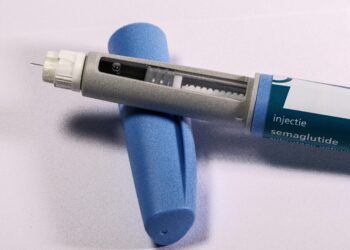Just before the holiday break, the FDA approved the first genetic test that identifies whether adult patients who are soon to be initially exposed to opioid therapy for acute pain are at an elevated risk of developing opioid use disorder (OUD).
Last year, the FDA voted against approval for an earlier version of this test, citing false negative and false positive test results as a major risk factor. The latest version, the one approved, still has that problem. The observational study evaluating the test that was presented to the FDA advisory committee had a sensitivity of 82.76% and a specificity of 79.23% for detecting OUD.
For context, a highly sensitive test means there are few false negative results. And a highly specific test means there are few false positive tests. Both the sensitivity and specificity of this genetic test are batting around 80%, which means 1 out of every 5 test results could be a false negative or a false positive.
That is a big range of error, particularly when dealing with a patient’s postoperative pain. The FDA committee that approved the genetic test acknowledges this and issued the following statement:
“It is critical that users of the test (healthcare providers and patients) understand how to interpret the test result and use it not in isolation, but as part of a comprehensive clinical evaluation and risk assessment.”
However, like most things in healthcare, once a test becomes available that quantifies and simplifies a critical decision, that test becomes the primary basis for the decision. It is simply the nature of heuristic thinking in healthcare.
Addiction, however, is not something you can just predict genetically.
The impact of behavioral factors on addiction is a complex and multifaceted. There is much that we need to learn as the field continues to be researched and explored. One key aspect to study is the connection between epigenetics and addiction.
Epigenetics refers to the study of changes in gene expression that occur without changing the underlying DNA sequence. This field of study has revealed how certain behavioral factors, such as stress and trauma, alter gene expression and increase vulnerability to addiction. Understanding this connection is crucial for developing effective prevention and treatment strategies for patients at risk of addiction. More importantly, this connection reveals the pitfalls in simply correlating a patient’s genes with addiction risk, which is precisely what this latest genetic test claims to do.
It is true that studies have shown certain genes to increase the risk of developing addictive behaviors. For example, variations in specific genes involved in reward pathways and neurotransmitter regulation can influence an individual’s response to substances and their likelihood of developing dependencies or addictions.
However, genetics alone do not determine addiction. Environmental factors, including behavioral factors, play a significant role in shaping an individual’s risk. The interaction between genetics and behavior is ultimately what contributes to the complex nature of addiction.
Unraveling the epigenetics connection
Research has shown that epigenetic changes can occur in response to substance abuse and contribute to the development of addiction. For instance, studies have revealed that chronic drug use can lead to modifications in the DNA methylation patterns, histone modifications, and noncoding RNA molecules associated with addiction-related genes.
But epigenetic changes can also create modifications that protect patients against addiction or susceptibility to addiction. Many studies have found epigenetics play a role in developing protective factors that counter adverse environmental stressors. Psychiatrists studying the effects of stress and trauma on patients have found that in the face of adversity, patients can react in diametrically opposite ways. Some individuals develop stress-related disorders such as depression or post-traumatic stress disorder (PTSD), while a significant proportion exhibit psychological resilience.
Furthermore, social interactions also play a major role in epigenetic processes. Positive social connections and a strong support system can promote healthy gene expression patterns, while isolation and loneliness can lead to detrimental epigenetic changes that are linked to addiction.
Simply put, a patient’s genetic predisposition to addiction or OUD is not a static construct. It varies over a person’s life and is relative to many social, behavioral, and environmental factors. These factors do not necessarily lead to changes in a patient’s DNA structure.
Unraveling the connection between behavioral factors and epigenetics is crucial for understanding addiction and developing effective treatment and prevention strategies. Any genetic test that claims to be able to read a patient’s genetic sequence and then forecast the addiction risk is ignoring all the literature that suggests epigenetics play an equal, if not larger, part in a patient’s addiction susceptibility.
Rather than try to stratify addiction risk through a convenient genetic marker – as though addiction is simply an on/off switch we are inherently wired with – we would be better off studying in greater detail the role epigenetics play in addiction. Identifying the behavioral factors that contribute to adverse epigenetic changes allows for targeted prevention efforts based on an individual’s unique genetic and epigenetic makeup.
Unfortunately, in today’s healthcare, we seem to only value what is quantifiable, even if what the numbers tell us is inconclusive. It’s a shame that many post-operative patients will suffer as a result.

















Thank you for writing about this important topic-the government continues to try to solve complex issues with simple solutions, all the while profiting somewhere along the line. My brother told me years ago “they create problems so they can look like they’re doing something to help us”….